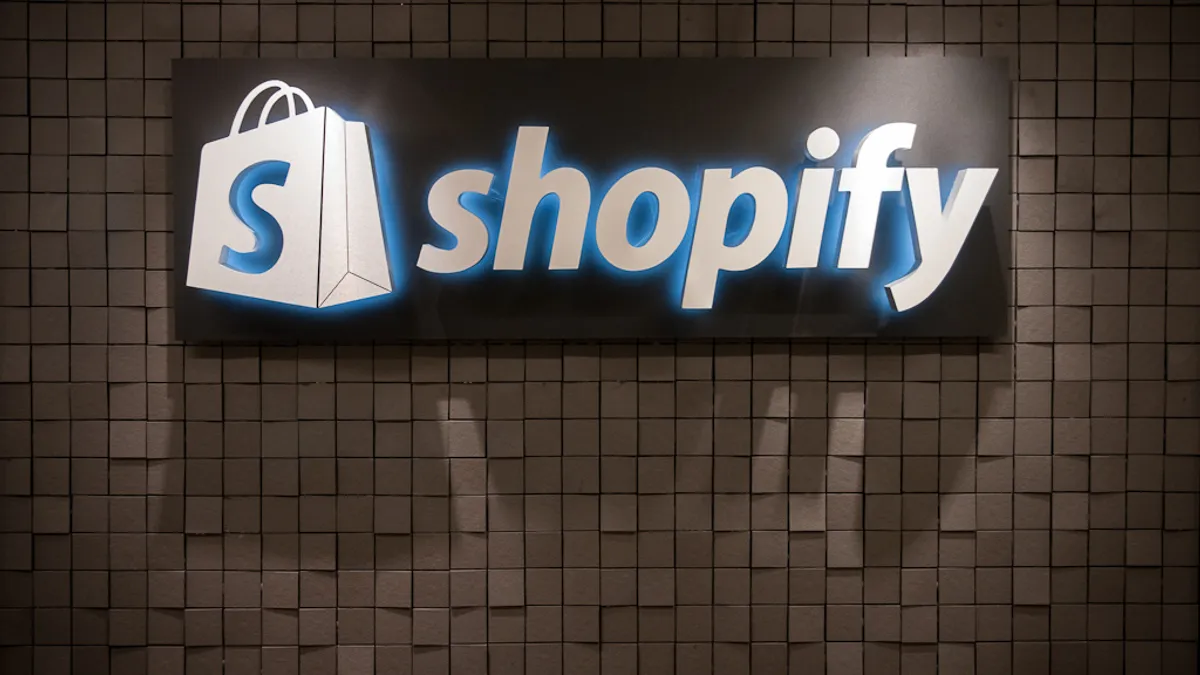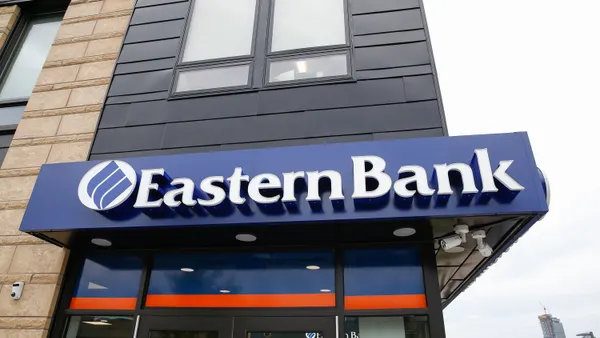Dive Brief:
-
Shopify this year will launch Shopify Balance, a platform that gives merchants an account in which they can manage their cash flow, pay bills and track expenses, the Canadian e-commerce company announced Wednesday.
-
Shopify Balance will also include a virtual and physical card, which businesses can use to access their money and earn rewards for their expenses. "We found that two in five merchants are currently using their personal bank accounts and cards for business, meaning they’re combining their personal and business finances, making it difficult to measure the financial health of the business,” the company said in a statement.
-
The company is also launching Shop Pay Installments, a buy-now, pay-later option at checkout that will let customers split purchases into four equal payments over time. The payments are interest free and come with no additional fees, the company said.
Dive Insight:
Add Shopify to the list of businesses facilitating installment payments for consumers. Platforms such as Afterpay and Klarna have also allowed customers to pay in increments. It's a service that can potentially help land sales in a time of economic uncertainty.
The coronavirus pandemic has forced many retailers to temporarily close their physical stores, leading to a 16% decline in overall sales in April. Shopify's new features are aimed at helping its 1 million-plus merchants adapt their businesses during the outbreak, the company said in the announcement.
"These are unprecedented times. This is going to be one of the most challenging chapters in all of our lives," Shopify CEO Tobi Lütke said in a statement. "But entrepreneurs are the kind of people who make the most out of what they've got. They're the people who can see opportunity when everyone else sees despair."
Shopify has not yet revealed its banking partner. However, merchants in the U.S. can now register early for Balance.
“Our goal here isn’t to replicate a bank,” Kaz Nejatian, Shopify's general manager of financial solutions, told American Banker. “The goal here is build financial products for our merchants that are newer and more nimble than what traditional banks offer.”
Small businesses during the crisis have found difficulty in reaching their banks and applying for relief.
“We think legacy banks serve the largest corporations really well,” Nejatian said. “But small businesses or independent entrepreneurs can’t get access to the services they want, and the services they can access are insanely expensive.”
In addition to Shopify Balance and Shop Pay Installments, the company announced the rollout of a new local delivery product for merchants. The service will help sellers define a local delivery area, set local delivery fees and minimum order prices, and send customers notifications when deliveries are en route. The company also pointed to its recent partnership with Facebook, which introduced Facebook Shops this week so merchants could build branded versions of their online store via Instagram and Facebook.
The rollout of these new features is Shopify's latest move to improve services for merchants. The company introduced Shop, a mobile shopping assistant app, late last month, and it launched a new series of point-of-sale devices last year.
Other tech platforms have unveiled new tools and resources to help companies transition to e-commerce during the outbreak and beyond. In mid-April, Builder.ai debuted pre-packaged apps for small and midsize businesses that quickly transition their companies to digital. In early April, eBay pledged $100 million to support small businesses and debuted an accelerator program for merchants moving into e-commerce.












